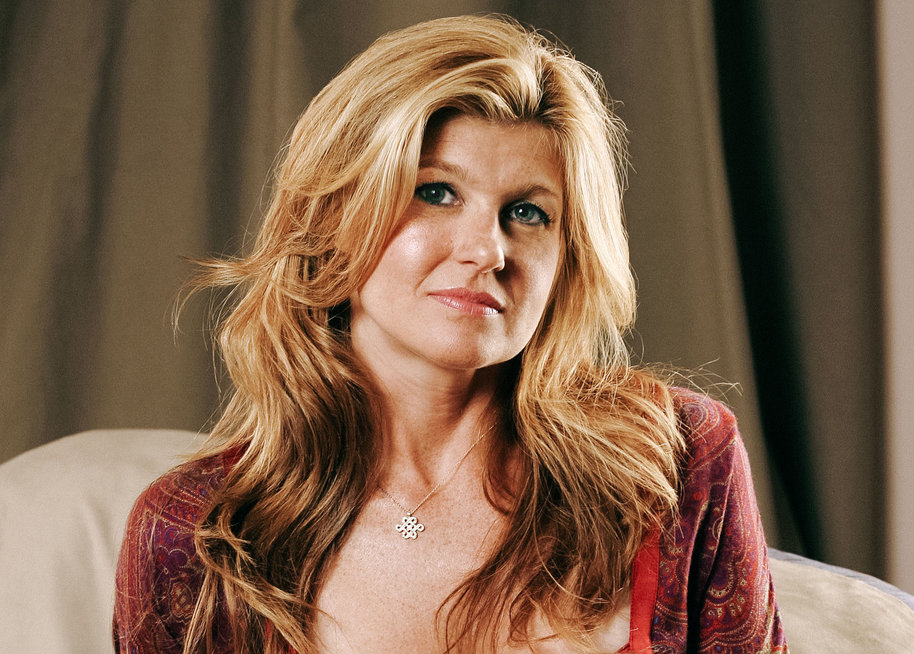Diane Haithman is an AwardsLine contributor. This article appeared in the Jan. 2 issue of AwardsLine.
Connie Britton, 45, is a multiple Emmy Award nominee for her roles on Friday Night Lights and American Horror Story. But during one of her typical 16-hour workdays for ABC’s freshman drama Nashville, she says of her first Golden Globe nomination—for best actress in a TV drama series—that it never gets old: “I’m far from jaded about awards nominations.” Britton shares the honor with costar and fellow Golden Globe nominee Hayden Panettiere, 23, and talks about why their onscreen duet seems to work.
AWARDSLINE: What is the appeal of the uneasy relationship between your character, Rayna Jaymes, and her young competitor, Hayden Panettiere’s Juliette Barnes?
CONNIE BRITTON: I was talking to (Nashville creator) Callie Khouri last night, and we were both talking about just how much fun it is, particularly now that Hayden’s character and my character are really engaging. What’s funny to me is, in the first five or six episodes, we didn’t really engage that much. There is something really interesting about these two women in very different places in their lives who are fighting for their lives in different ways.
AWARDSLINE: We hear stories about actors who go to unusual lengths to stay in character on set—fellow Golden Globe nominee Daniel Day-Lewis in Lincoln is a good example. What about you two?
BRITTON: No. (Laughs.) I think Daniel Day-Lewis is one of the greatest actors that we have amongst us right now, but I don’t think if Daniel Day-Lewis was doing television, he could sustain that. We have 22 episodes.
AWARDSLINE: Before the show aired, everyone hailed it as a new Dallas. Is Nashville a soap opera or close to reality?
BRITTON: At first, I resisted the over-the-top elements of the show, and I was really pushing for complex storytelling because I think Nashville deserves that. That being said, there are some big stories in Nashville. Having a spent a little time in Nashville, hearing some of the lore of this town, I’m saying: “We’re playing it safe.”
AWARDSLINE: And yet it’s not the big platinum hair, Dolly Parton, “Rhinestone Cowboy” world.
BRITTON: I really wanted Rayna to be coming from that more simplified core storytelling place of a Bonnie Raitt or a Lucinda Williams. Such amazing women.
AWARDSLINE: How does Nashville compare with another heightened reality you are familiar with, Hollywood?
BRITTON: A friend of mine here, we were talking about the Country Music Awards, and she was saying, “It’s just like an awards ceremony in Hollywood, but everybody’s nice.” I sort of love that. Nashville is where the business is; there are more parallels with Hollywood than I originally thought. But it feels less cutthroat than Hollywood. And frankly, it’s a much smaller town where people have to live together. In Hollywood you can kind of screw somebody over and not really have to see them for a while.
AWARDSLINE: Callie Khouri has been involved in many projects, but I think many women associate her with writing Thelma & Louise, about two women literally on the road to self-empowerment. Are there any parallels here?
BRITTON: I am, and was, and always will be an enormous fan of Thelma & Louise. I really grew up with that being a seminal movie for me. So I’ve always known who Callie Khouri was; that’s why I was so excited when I got this script. Hers is an interesting kind of feminism. It’s not in your face. (In Nashville), it’s dealing with the complexities of being a woman in a society that really isn’t built for feminism. That’s what I’ve always liked about playing Southern women; some of the most fierce women I’ve known were women from the South, yet they are coming from a world that is not very welcoming to their fierceness. I think Callie really confronts those aspects of feminism in a really unique way. It’s a little subversive, actually.
AWARDSLINE: As Hayden Panettiere has said, the show wouldn’t be believable if her character were a truly bad singer. She has to be good or your character would not feel so threatened.
BRITTON: Yeah, completely. It’s not about good voice, bad voice; it’s about style and values and really the culture. Rayna comes from a tradition of country music, and Juliette is feeding into a sort of a pop-culture frenzy, she is representing this new way that people listen to things and look at things based on new media—there’s a lot less storytelling and a lot more bling. Rayna doesn’t really understand it or respect it, but she’s kind of getting knocked on her ass by it, because basically everybody’s saying, “You’ve got to pick up these new ways or you are going to be left behind.”
AWARDSLINE: Did you have any trepidation about not only taking on a singing role, but the role of someone who is supposed to be one of the great country voices of our time?
BRITTON: Terror. It was horrifying. Because I am the least-trained singer in the show, it was really important to me to be really specific about the type of music Rayna sings. It had to be more about the heart and the soul that she brings to the songs than about having the best voice in the world. Honestly, I would never have taken the role if I thought that it would be any other way.

